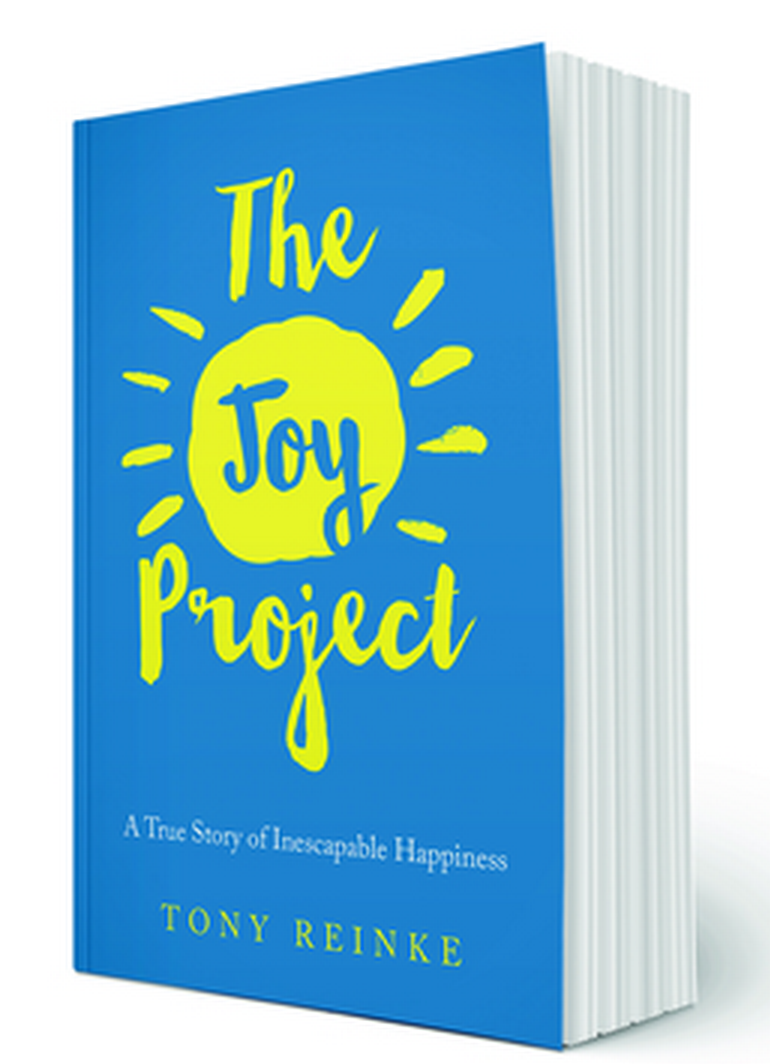
What do you get when you combine Gretchen Ruben’s Happiness Project with the Five Points of Calvinism and Tony Reinke’s compelling writing?
You’re looking at it.
It sounds like a weird and unworkable combination, but it works well and results in an outstandingly beautiful presentation of the doctrines of grace.
Tony is careful to clarify early on that this is not a Christianized version of The Happiness Project. This is not a book of practical theology, but of pure theology. It’s not a book centered on you, but on God. It’s not a book about what you can do to make yourself happier (though there is a place for that). It’s a book about what God has done to make you happier. It’s not DIY-happiness, but GDI-happiness. (You work it out!)
It uses the hook of the universal human pursuit of happiness to draw the reader in, only to dash these doomed hopes of happiness to dust, and then rebuild them on solid durable biblical foundations.
Its five main chapters are built around the five points of Calvinism. But it’s not your usual over-systematized presentation of the doctrines of grace that, while theologically correct, kills the beauty of grace and bores the reader to tears. By using the overarching theme of The Joy Project, Tony manages to join accuracy with attractiveness, and correct theology with compelling theology.
Additional Clarity
There’s one area I’d have liked to see a bit more clarity on. The first section on the atonement uses language that others have used about its sufficiency for all but applied only to some. Due to the possibility of people implying some kind of universal atonement from that (something Tony does distance himself from), I prefer not to use that language. Also, if God did not intend the atonement to be for all, He never intended it to be sufficient for all. So, it’s kind of a moot point. Yes, it does make “limited” or “definite” atonement more easy to defend and present; but is it true?
Additional Emphasis
There is one other area I’d like to have seen more emphasis on, although it might have diverted from the joy trajectory, and that is God’s aim of holiness. Tony repeatedly stresses God’s aim of His people’s happiness. That’s one of His aims, for sure, but it’s not the only aim. The Apostle Paul also frames the doctrines of grace as God aiming for His people’s holiness:
He chose us in Him before the foundation of the world, that we should be holy and without blame before Him in love (Eph. 1:4).
It’s not a popular emphasis today, but maybe Tony’s next book might be The Holiness Project. (Or someone else might want to write something like, oh say, The Holy Christian perhaps?). Holiness and happiness are not contradictory of course. But without minimizing the plan, pursuit, and provision of joy, our generation probably needs to add an equal emphasis on the plan, pursuit, and provision of holiness. It’s not only believing the truth that produces joy (though we start there). Obeying the truth in every area of life also brings immense joy to the soul (John 14:21,23).
Who is this for?
That said, if you’ve ever wanted a book to help introduce someone to the doctrines of grace, not just the truth of them but the beauty of them, this book is perfect in size, content, and style. I’ll be getting a supply of them to give away.
If you want to persuade Arminian friends, this won’t beat them over the head with naked logic, but will so whet their appetites that they surely cannot but desire to feast upon these truths. It’s the best apologetic (not apology) for Calvinism I’ve come across. It’s been so wonderful to see Tony Reinke’s writing gifts flourish so much since his move to Minneapolis a few years ago.
If you want to revive your own love for these truths, The Joy Project should do the trick. It will give you some outstanding phrases and sentences to meditate on and even memorize. It will inject a new and fresh perspective into old truths, giving you a passion to spread the message of the supremacy of God for the joy of all peoples. Oh, wait, didn’t someone say that somewhere before?
You can buy the real book at Amazon or you can download an eBook or pdf version here.